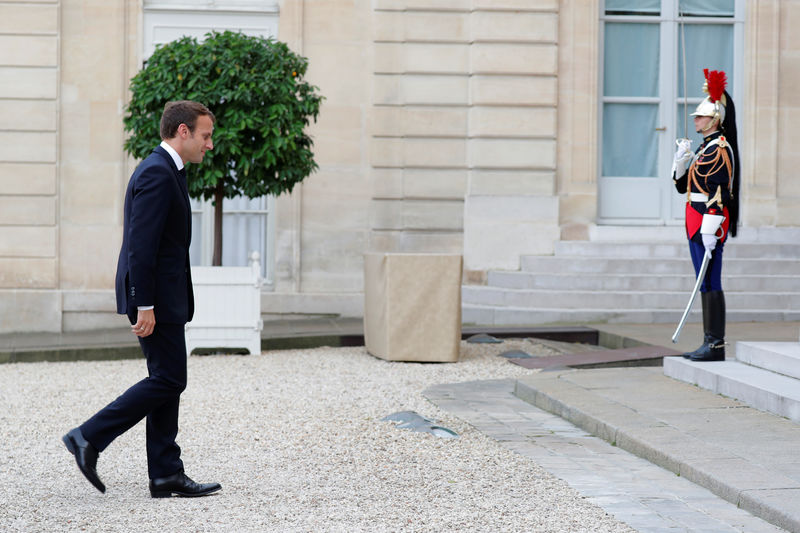By Jan Strupczewski and Alastair Macdonald
BRUSSELS (Reuters) - The European Union will have to reconsider its Brexit strategy if Britain fails to improve its offers to Brussels significantly by the end of the year, European Council President Donald Tusk said on Tuesday.
Effectively ruling out that EU leaders will agree to British demands to open talks on a future free trade pact when Tusk chairs a summit with Prime Minister Theresa May in Brussels next week, he said he still hoped for such a move in December.
Responding to renewed suggestions from May's government that Britain could simply leave the EU in March 2019 without a negotiated settlement, Tusk said the EU was not working on a "no deal" scenario.
But he warned that if, by the end of this year, progress was still slow then it would be time to think again.
EU negotiators have stepped up contingency planning for a breakdown in talks [nL8N1MJ0DO] and warn that time is short to agree even a basic divorce treaty. The more time passes, the less likely they can negotiate the kind of "bespoke" transition and future close trading relationship that May says she wants.
"We hear from London that the UK government is preparing for a 'no deal' scenario," Tusk told EU regional leaders in Brussels. "The EU is not working on such a scenario. We are negotiating in good faith, and we still hope that the so-called 'sufficient progress' will be possible by December.
"However, if it turns out that the talks continue at a slow pace, and that 'sufficient progress' hasn't been reached, then – together with our UK friends – we will have to think about where we are heading."
Though Tusk did not specify what that might mean, EU officials say that without agreement to move into a second phase of talks on the future early next year, there will be insufficient time to negotiate much more than a very limited exit treaty.
May lent new impetus to negotiations by making concessions in a speech at Florence last month, but a new round of talks in Brussels this week ahead of the summit is not expected to even touch on how much London may pay on Brexit -- the biggest of three key areas on which the EU demands "sufficient progress".
The other 27 national leaders could offer May some hope of opening trade and transition talks in December, which could help in her struggle with party rivals pushing for a clean break "hard Brexit", diplomats say [nL8N1MJ0DH]. But Tusk's warning is an indication that May should not expect the EU to ease up much.
This week has seen some sign of public tension. May said on Monday that the "ball" was in the EU's court to make concessions and the European Commission retorted that it was in Britain's.
Pressed further on the sporting metaphor on Tuesday, EU negotiator Michel Barnier told reporters after what he called a "constructive" lunch with British Brexit Secretary David Davis: "Brexit is not a game."

Further "technical talks" among officials were scheduled for Wednesday, as British officials rejected suggestions that they had not been available to negotiate. The day had originally been left blank on the schedule agreed by the two sides.